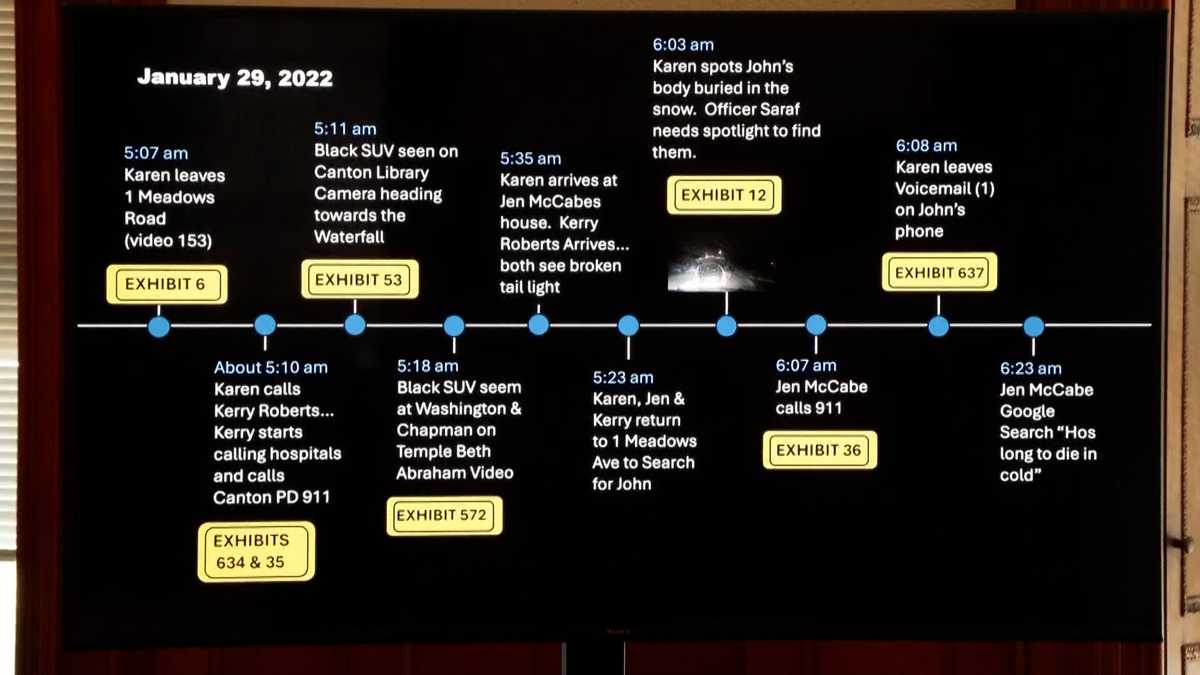EV Mandate Backlash: Car Dealerships Renew Fight Against Regulations

Table of Contents
Economic Concerns Fueling the Backlash
Dealerships are voicing strong concerns about the economic implications of rapid EV adoption mandates. The substantial investment required to adapt to the new reality is a primary driver of this resistance.
Investment Costs and Infrastructure
Dealerships argue that the significant investment needed to upgrade their facilities for EV sales and servicing creates an undue burden. This includes the installation of charging stations, acquisition of specialized tools for EV repair, and training technicians on EV-specific maintenance procedures.
- High upfront costs for charging infrastructure: Installing Level 2 and DC fast chargers represents a considerable capital expenditure, particularly for smaller dealerships with limited resources.
- Lack of government support for infrastructure upgrades: Many dealerships feel that government incentives and support for infrastructure upgrades are insufficient to offset the substantial costs involved. This financial gap exacerbates the strain on their businesses.
- Training technicians on EV-specific repairs: Training existing mechanics and hiring new technicians with expertise in EV repair adds significantly to operational expenses. The specialized knowledge required for battery repair, electric motor diagnostics, and high-voltage system work demands considerable investment in training programs.
Inventory Management Challenges
The transition to EVs necessitates a significant shift in inventory management strategies. This presents new logistical and financial challenges for dealerships.
- Balancing EV and gasoline car inventory: Accurately forecasting demand for both EV and gasoline-powered vehicles is crucial, but challenging given the uncertainty surrounding EV adoption rates.
- The uncertainty surrounding EV adoption makes accurate inventory prediction difficult: This uncertainty leads to the risk of overstocking one type of vehicle while understocking the other, impacting profitability.
- Potential for unsold gasoline vehicles adds to financial risk: As EV adoption increases, dealerships face the risk of being left with unsold gasoline vehicles, leading to potential losses due to depreciation and storage costs.
Reduced Profit Margins
Dealerships are concerned that profit margins on EVs may be lower than those on traditional internal combustion engine (ICE) vehicles.
- Lower service revenue due to reduced maintenance needs in EVs: EVs require significantly less maintenance than gasoline cars, impacting the potential revenue stream from service and repair work.
- Increased competition among dealerships selling EVs: The growing number of dealerships offering EVs is increasing competition, potentially driving down prices and profit margins.
- Pressure to reduce prices to compete with other dealerships and EV-only brands: Dealerships are forced to compete not only with traditional car manufacturers but also with new EV-only brands, putting further pressure on pricing and profits.
Consumer Demand and Market Readiness Concerns
Beyond the economic factors, dealerships also question the current market readiness for a complete shift to EVs.
Consumer Acceptance and Affordability
Dealerships argue that consumer demand for EVs isn't yet sufficient to justify a forced, rapid transition.
- Range anxiety remains a significant concern for potential EV buyers: Concerns about the driving range of EVs and the availability of charging stations continue to deter many potential buyers.
- The high purchase price of EVs compared to gasoline vehicles is a major deterrent: The higher initial cost of EVs remains a significant barrier for many consumers, particularly those with limited budgets.
- Limited availability of public charging infrastructure in many areas: The lack of widespread, reliable charging infrastructure, especially in rural areas, hinders EV adoption.
Infrastructure Gaps and Charging Accessibility
The uneven distribution and limited availability of charging infrastructure is a major obstacle to widespread EV adoption, according to dealerships.
- Uneven distribution of charging stations, favoring urban areas: Charging stations are concentrated in urban areas, leaving rural drivers with limited options.
- Concerns about charging speeds and reliability: Inconsistent charging speeds and the occasional malfunction of charging stations create further anxieties for EV drivers.
- Lack of standardization in charging technology: The absence of a universally accepted charging standard complicates the charging process and adds to consumer confusion.
Strategies Dealerships are Employing to Address the EV Mandate
Despite their concerns, dealerships are actively pursuing strategies to adapt to the changing landscape.
Lobbying and Advocacy
Dealerships are employing various advocacy methods to influence policymakers and shape the implementation of EV mandates.
- Working with industry associations to present a united front: Collaboration among dealerships and industry organizations strengthens their collective voice in lobbying efforts.
- Direct lobbying of government officials: Dealerships are engaging directly with government representatives to express their concerns and propose alternative solutions.
- Public relations campaigns to educate consumers and policymakers: Dealerships are working to educate the public and policymakers about the challenges and complexities of the transition to EVs.
Investing in Training and Infrastructure
Many dealerships are investing in training and infrastructure improvements, albeit gradually and cautiously.
- Partnering with EV manufacturers for training programs: Dealerships are collaborating with EV manufacturers to access training programs for their technicians.
- Gradually investing in charging infrastructure: Many dealerships are strategically investing in charging infrastructure, balancing the need for EV readiness with their financial capacity.
- Seeking government grants and incentives to offset costs: Dealerships are actively seeking government grants and incentives to reduce the financial burden of EV adoption.
Conclusion
The EV mandate backlash from car dealerships underscores the significant challenges inherent in transitioning to a fully electric automotive landscape. Economic concerns, doubts about consumer readiness, and critical infrastructure gaps are central to their arguments. While dealerships acknowledge the long-term necessity of transitioning to EVs, they are advocating for more realistic timelines and substantial government support to manage the transition effectively. Finding a balance between ambitious environmental goals and the economic viability of the automotive industry is paramount. Ignoring the concerns surrounding the EV mandate could have negative consequences for the entire industry. Addressing the concerns raised in this EV mandate backlash is crucial for creating a successful and sustainable strategy for widespread EV adoption. Let's collaborate to find solutions that satisfy both environmental demands and the economic realities of this transformation.

Featured Posts
-
 Following The Karen Read Murder Case A Timeline
Apr 22, 2025
Following The Karen Read Murder Case A Timeline
Apr 22, 2025 -
 Razer Blade 16 2025 Review Is The Premium Price Worth The Ultra Performance
Apr 22, 2025
Razer Blade 16 2025 Review Is The Premium Price Worth The Ultra Performance
Apr 22, 2025 -
 Russias Renewed Offensive In Ukraine The Aftermath Of The Easter Ceasefire
Apr 22, 2025
Russias Renewed Offensive In Ukraine The Aftermath Of The Easter Ceasefire
Apr 22, 2025 -
 The Conclave And The Future Assessing Pope Franciss Reign
Apr 22, 2025
The Conclave And The Future Assessing Pope Franciss Reign
Apr 22, 2025 -
 Major Canadian Bread Price Fixing Case 500 Million Settlement Hearing In May
Apr 22, 2025
Major Canadian Bread Price Fixing Case 500 Million Settlement Hearing In May
Apr 22, 2025
